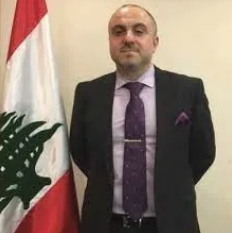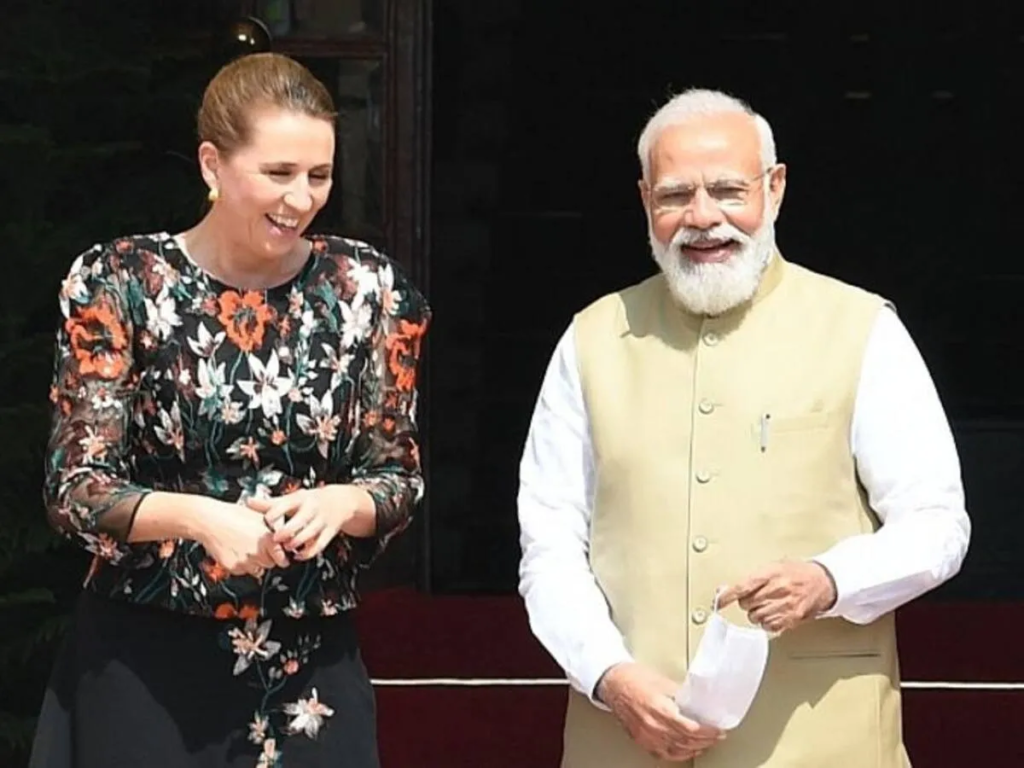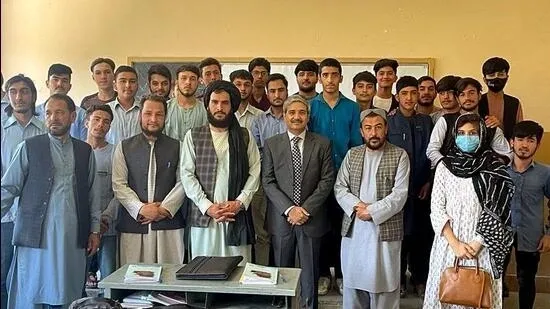Student Activism, Academic Courage and the Humanitarian Path Toward Ceasefire in Gaza
By Professor Habib Al-Badawi

The Israeli-Palestinian conflict remains an intractable and divisive issue that has captivated the global community for over seven decades. The occupation of Palestinian territories, including the besieged Gaza Strip and the West Bank, has precipitated a humanitarian crisis of staggering proportions, with Palestinian civilians enduring systemic oppression, human rights violations, and a denial of their fundamental right to self-determination. Despite repeated calls from the international community for a just and lasting resolution, the suffering of the Palestinian people continues unabated.
In this context, the resurgence of student activism across American university campuses, particularly at Columbia University, represents a powerful and necessary voice advocating for the Palestinian cause. Driven by a profound commitment to social justice and human rights, these mobilizations have amplified Palestinian narratives, challenged entrenched power structures, and confronted the complicity of academic institutions in perpetuating systems of oppression.
Columbia University’s Legacy of Dissent and Activism
Columbia University has a storied history of student activism and dissent, dating back to the pivotal protests of the 1960s. During this era of social upheaval, Columbia’s campus was a crucible for the anti-war movement, with students courageously challenging the university’s involvement in military research and the broader injustices of the Vietnam War. This legacy of resistance has left an indelible mark on the institution, serving as a testament to the transformative power of student voices and the vital role of academic spaces in fostering critical discourse.
Building upon this rich tradition, the Gaza Solidarity Encampment at Columbia University has emerged as a contemporary embodiment of the university’s activist spirit. Established in April 2023, this symbolic encampment provided a platform for students to engage in peaceful protest, education, and advocacy for Palestinian rights. Through teach-ins, artistic expressions, and open dialogues, the encampment fostered a space for critical discourse, challenging the prevailing narratives that perpetuate the occupation and human rights violations in the Occupied Palestinian Territories.
The Humanitarian Crisis in Gaza: A Call to Action

The Gaza Strip, a densely populated coastal enclave home to over two million Palestinians, has been subjected to a crippling blockade imposed by Israel since 2007. This blockade has precipitated a dire humanitarian situation characterized by widespread poverty, food insecurity, crumbling infrastructure, and a severe lack of access to essential services. According to United Nations reports, the blockade has devastated Gaza’s economy, with unemployment rates soaring and over 80% of the population relying on international aid for survival.
Furthermore, the recurrent military offensives launched by Israeli forces have exacerbated the suffering of Gaza’s civilian population, resulting in loss of life, displacement, and the destruction of homes, schools, and critical infrastructure. International human rights organizations, such as Amnesty International and Human Rights Watch, have documented numerous violations of international humanitarian law, including indiscriminate attacks on civilian areas and the use of disproportionate force.
In the face of this unfolding humanitarian catastrophe, the global community has a moral imperative to amplify Palestinian voices and demand urgent action to alleviate the suffering of Gaza’s inhabitants. Student activism at Columbia and other institutions has played a crucial role in raising awareness and mobilizing support for the Palestinian cause, serving as a powerful counterweight to the narratives that perpetuate oppression and marginalization.
A Catalyst for Change: The Nationwide Resonance of the Gaza Solidarity Encampment
The Gaza Solidarity Encampment at Columbia University has catalyzed a nationwide wave of pro-Palestinian activism on American campuses. This symbolic encampment’s resonance extended far beyond the confines of Columbia’s campus, igniting a domino effect of solidarity demonstrations at institutions of higher learning across the United States.
From Princeton University to the University of Texas at Austin, students have erected symbolic encampments, organized rallies, and engaged in acts of civil disobedience to demand accountability from their institutions and express solidarity with the Palestinian people’s struggle for self-determination.
These mobilizations represent a resounding rejection of the status quo and a demand for meaningful change. Drawing inspiration from Columbia’s rich history of student activism and past social movements that challenged injustice and oppression, such as the civil rights movement and the anti-war protests of the 1960s, students across the nation have employed various forms of non-violent resistance, including teach-ins, artistic expressions, and symbolic encampments.
Challenging Institutional Complicity and Confronting Oppression
However, the resurgence of student activism has not been without resistance from those invested in maintaining the status quo. University administrations, often beholden to financial interests and political allegiances, have resorted to authoritarian measures to quell dissent and suppress free speech.
The arrests of peaceful protesters at Columbia University, instigated by the institution’s president, Nemat “Minouche” Shafik, have drawn widespread condemnation for violating the constitutionally enshrined rights to free speech and peaceful assembly, undermining the very principles of academic freedom that Columbia has long upheld.
Moreover, authorities have employed insidious tactics to discredit and delegitimize the Palestinian solidarity movement, invoking the specter of anti-Semitism in an attempt to conflate legitimate criticism of Israeli policies with anti-Jewish sentiment. This strategy aims to silence voices advocating for Palestinian rights and deflect scrutiny from well-documented human rights abuses, effectively perpetuating a narrative that serves the interests of the oppressor.
However, student activists at Columbia and beyond have courageously confronted the complicity of their universities in perpetuating systems of oppression, both directly and indirectly. By demanding transparency, divestment from entities complicit in the occupation, and accountability for human rights violations, students are challenging the deeply entrenched ideologies and narratives that have historically served to justify and perpetuate injustice. In doing so, they are upholding Columbia’s tradition of critical inquiry and resistance to oppressive forces, echoing the spirit of the university’s storied activist past.
The Enduring Legacy of Student Activism and Academic Freedom

The current wave of student activism in Columbia and across America represents a pivotal moment in the ongoing battle against systemic injustice and the pursuit of human rights and dignity for all. Drawing inspiration from the iconic protests of the 1960s and Columbia’s history of dissent, students are harnessing the power of collective action and non-violent resistance to challenge oppressive power structures and demand accountability from their institutions.
Through their unwavering commitment to social justice and their willingness to confront the forces that seek to silence dissent, student activists are reaffirming the transformative potential of academic institutions to shape societal narratives and catalyze meaningful change. By providing a platform for dissenting voices and fostering an environment conducive to rigorous intellectual discourse, universities like Columbia can play a vital role in dismantling the narratives that perpetuate oppression and in shaping a more just and equitable world order.
Forging Paths to Justice: Uniting Student Activism and Academic Inquiry for Ceasefire in Gaza
As the struggle for Palestinian rights and broader social justice continues to unfold on campuses across America, the enduring legacy of student activism at Columbia University and beyond serves as a powerful reminder of the pivotal role academic institutions play in shaping societal narratives and fostering positive social change. The current wave of protests represents a defining moment in the ongoing battle against systemic injustice, as students harness the power of their collective voice and unified action to amplify the voices of the oppressed, challenge the complicity of their institutions, and forge a more equitable future for all.
In the face of authoritarian crackdowns and attempts to silence dissent, student activists have demonstrated an unwavering commitment to the principles of human rights, academic freedom, and the pursuit of truth. Their mobilizations have not only shed light on the plight of the Palestinian people but have also served as a rallying cry for the global community to confront oppression in all its forms, wherever it exists.
As scholars and advocates for universal human rights, we have a moral obligation to stand in solidarity with these student movements and lend our voices to amplify the call for justice, dignity, and self-determination for the Palestinian people. By embracing the principles of academic freedom and free speech, universities like Columbia can serve as catalysts for positive social change, fostering an environment where critical discourse can thrive, and marginalized narratives can be elevated.
The path toward a just and lasting resolution to the Israeli-Palestinian conflict will undoubtedly be arduous and fraught with obstacles. However, the unwavering commitment of students, scholars, and human rights advocates to the cause of Palestinian liberation serves as a beacon of hope, reminding us that the struggle for justice is an intergenerational endeavor that transcends borders and ideological divides.
It is through this unwavering solidarity, grounded in a profound respect for human dignity and the inviolable principles of international law, that we can collectively work towards a future where the people of Gaza and all oppressed communities can finally realize their inalienable rights to freedom, security, and self-determination.
The scientific study of social movements and non-violent resistance provides valuable insights into the transformative potential of student activism. Scholars have extensively documented the power of collective action, strategic non-violence, and the mobilization of grassroots support in effecting systemic change. The Palestinian solidarity movement on university campuses exemplifies these dynamics, leveraging the strength of unified voices and principled resistance to challenge entrenched power structures.
Furthermore, the interdisciplinary field of conflict resolution offers a wealth of theoretical frameworks and empirical evidence to inform the pursuit of a just and lasting resolution to the Israeli-Palestinian conflict. Negotiation strategies, third-party mediation, and the incorporation of international legal principles have proven effective in de-escalating tensions and facilitating dialogue between adversarial parties. By drawing upon these scientific approaches, student activists and their allies can contribute to the development of sustainable solutions that address the root causes of the conflict and uphold the human rights of all stakeholders.
Importantly, the role of academic institutions in fostering critical thinking, empirical research, and evidence-based policymaking cannot be overstated. Universities like Columbia, with their rich tradition of intellectual discourse and dissent, are uniquely positioned to serve as incubators for innovative ideas and rigorous analysis in the pursuit of conflict resolution and social justice.
By encouraging interdisciplinary collaboration, supporting academic freedom, and amplifying marginalized voices, these institutions can pave the way for groundbreaking research that informs effective strategies for addressing the humanitarian crisis in Gaza and broader issues of global inequality.
Moreover, the scientific study of human rights and international law provides a robust framework for evaluating the actions of state and non-state actors in the context of the Israeli-Palestinian conflict. By examining the principles enshrined in international humanitarian law, human rights treaties, and the resolutions of the United Nations and other intergovernmental organizations, researchers can objectively assess the legality and ethical implications of various policies and actions, holding all parties accountable to the highest standards of human rights and dignity.
Ultimately, the constructive collaboration between student activism, academic inquiry, and scientific research holds the key to advancing the cause of Palestinian liberation and promoting lasting peace and justice in the region. By leveraging the power of collective action, grounded in empirical evidence and principled advocacy, the global community can work towards a future where the rights and aspirations of all people are respected and upheld, regardless of their ethnicity, religion, or national origin.
As the resurgence of student activism at Columbia University and beyond continues to inspire and embolden a new generation of human rights defenders, we must embrace the transformative potential of this movement. By standing in solidarity with these courageous voices, amplifying their narratives, and supporting their efforts through rigorous academic inquiry and scientific research, we can collectively contribute to the realization of a more just, equitable, and humane world order.



